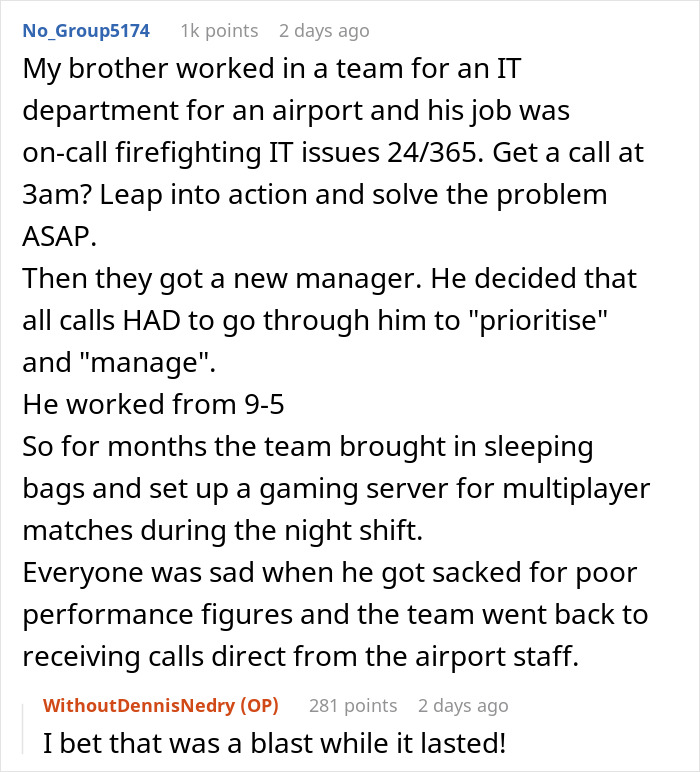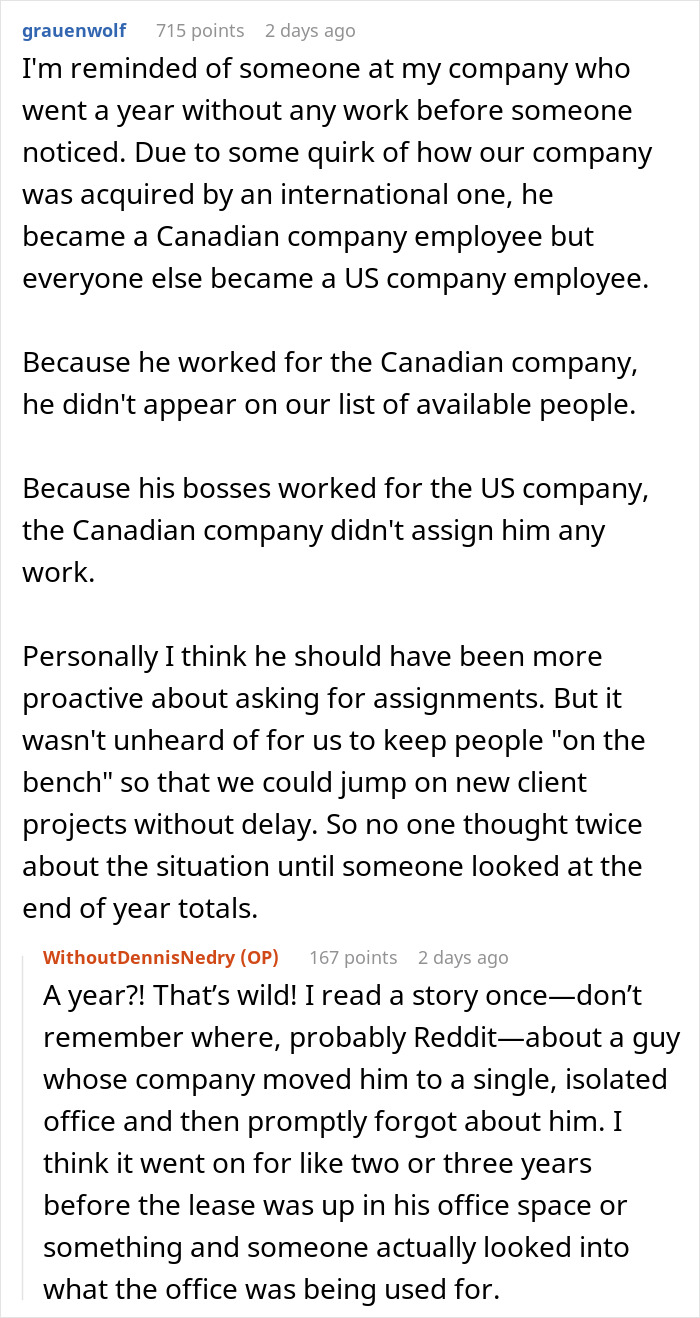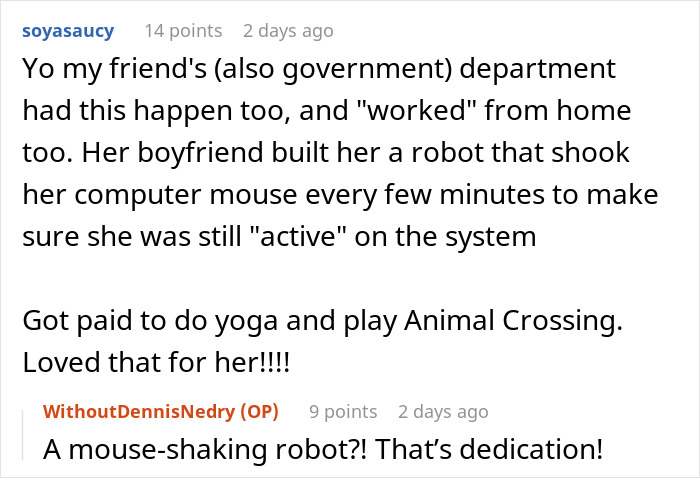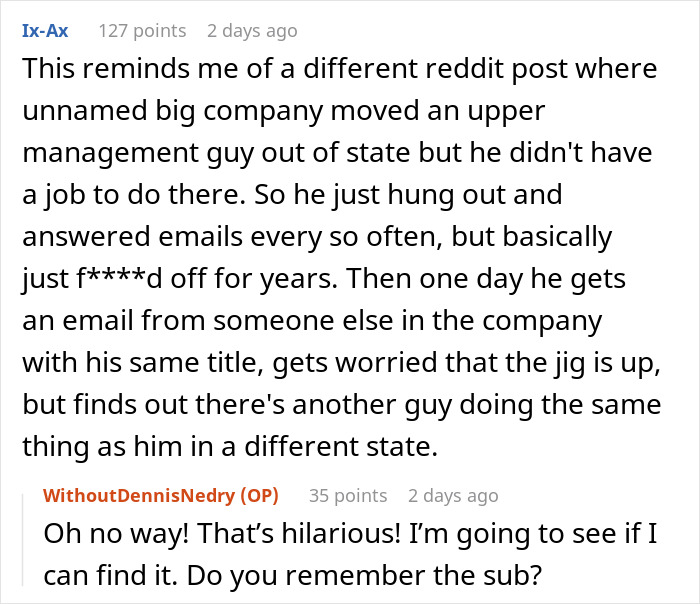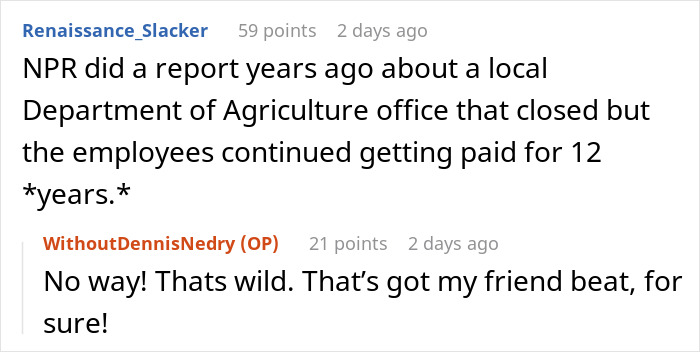All of you probably want something slightly different from your career. Some crave a deep sense of purpose, big bucks, or constant action, while others want stability, camaraderie, and a decent work-life balance. But anyone who’s ever been frustrated with their jobs might have wondered what it would be like to get paid for doing absolutely nothing.
For some folks, that’s their reality… all thanks to bureaucratic oversight. Redditor u/WithoutDennisNedry entertained the r/MaliciousCompliance online community with her friend’s hilarious work story. As it turns out, the government employee spent a whopping 19 months doing absolutely nothing at her job while still getting her paycheck. Scroll down for the full story and the internet’s reactions.
There will be moments in any job where you have barely anything to do. However, for some people, this lasts a really long while

Image credits: Polina Zimmerman (not the actual image)
One internet user shared her friend’s story about how she spent over a year getting paid to do absolutely nothing


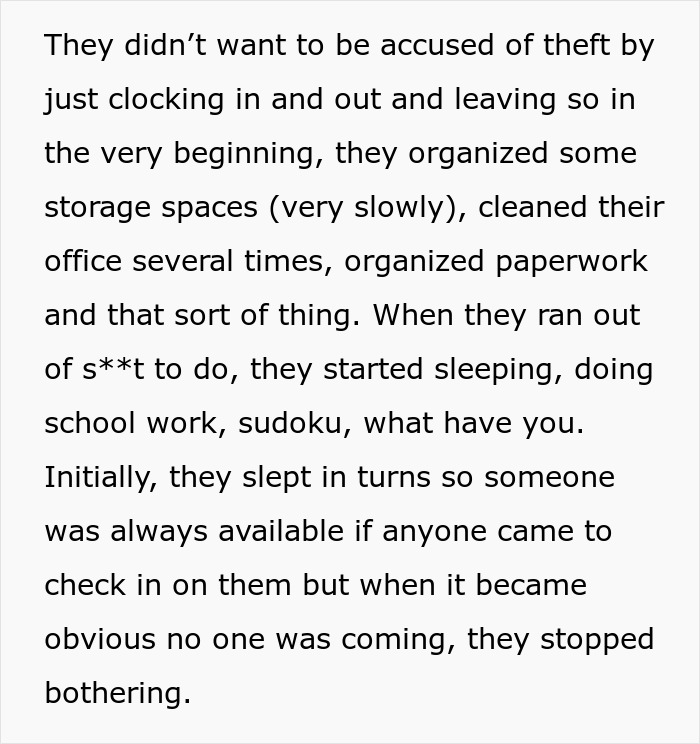
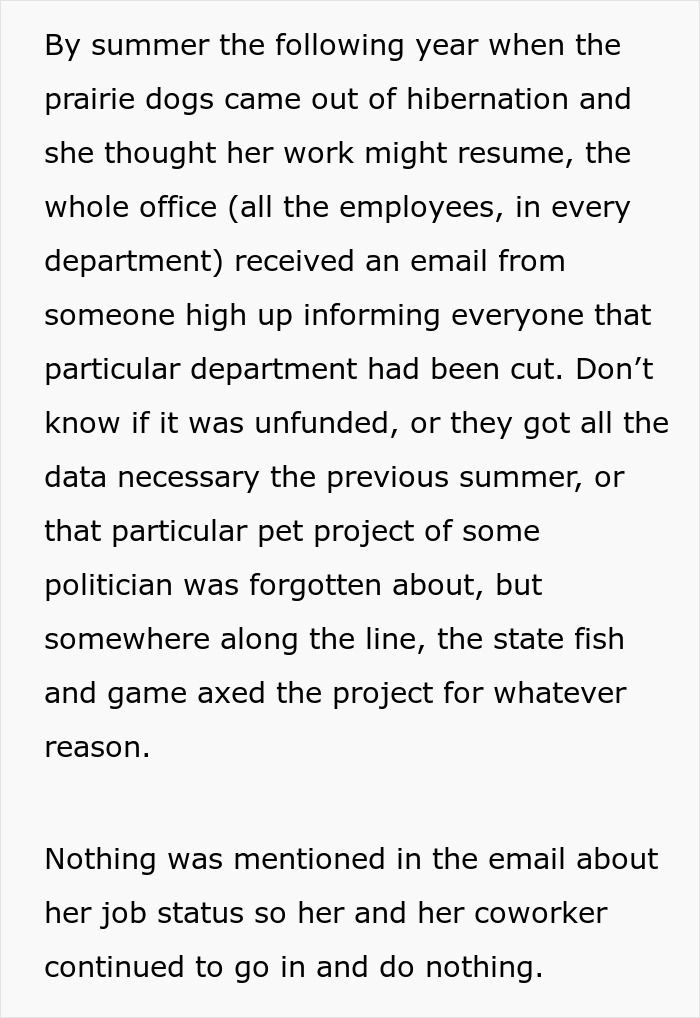


Image credits: Yan Krukau (not the actual image)
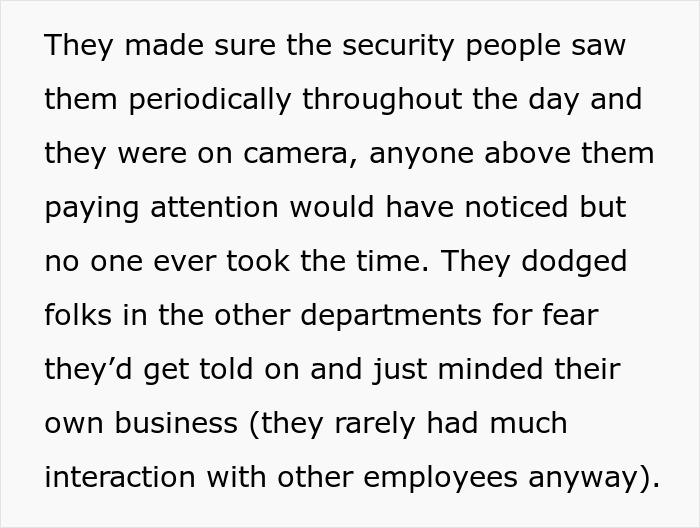

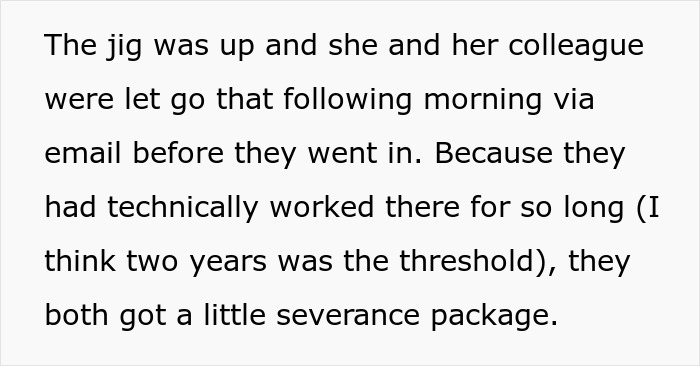

Image credits: Karolina Kaboompics (not the actual image)
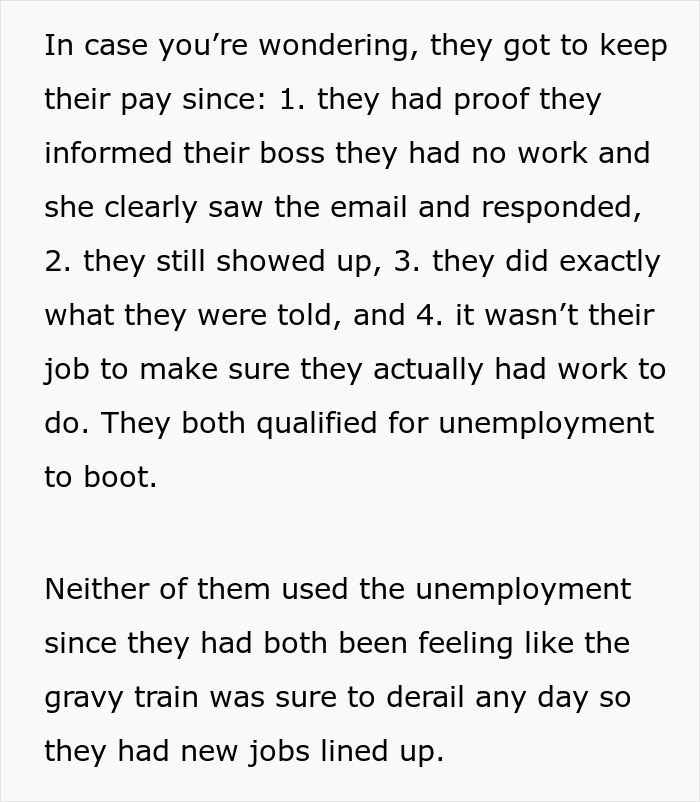
The author later shared some hilarious extra details from her friend
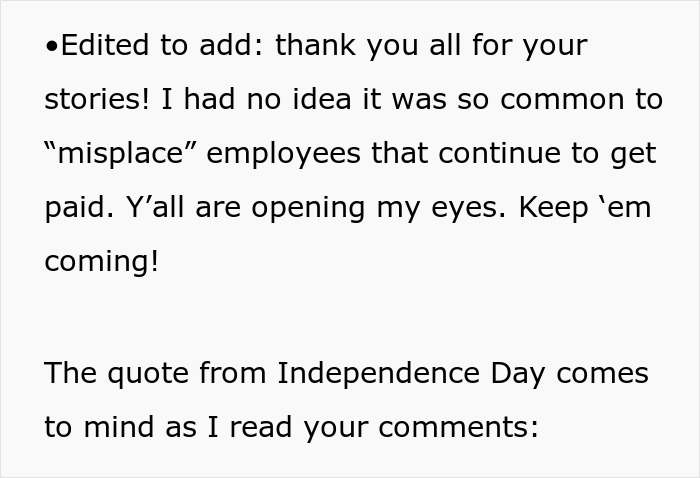




Image credits: RDNE Stock project (not the actual image)


Meanwhile, here’s what the former government employee is doing these days

Image credits: WithoutDennisNedry
Work can provide structure, meaning, and purpose in people’s lives
While it might sound like paradise for some, getting paid to do nothing can be, well, utterly boring and demotivating. At least after a few weeks or months of doing jack squat.
Work isn’t just about getting money to put a roof over your head and food on the table. It’s a fundamentally human way of interacting with the world and society.
To put it bluntly, we all need something to do. If it involves creativity and self-expression, challenges us, and connects us with others by helping them, then you’ve got something really special there. Work—in the broadest possible sense—gives our lives purpose.
So, if you’re stuck in an office with absolutely nothing to do, you’re essentially on welfare but still forced to clock in. Sure, you can goof around, take long naps, and build forts all you want, but it’ll get boring. Sooner or later, you’ll start craving more.
There’s much more to life than just existing and surviving. Many of us crave learning new things and skills and applying our knowledge to better the world in some small way.
With easy access to the internet, you can easily learn new things in your spare time. For instance, you might decide to enroll in some free or paid online courses so you can upskill in your job. Or you might choose some courses to help you change career paths.
Many universities and companies have programs that get you a cool certification (you can even add it to your LinkedIn account).
Even if you don’t pick a formal program, you can always hop on YouTube to learn something practical. Or download a book (or ten!) to learn about the topics that have always interested you in depth.
Learning never truly ends. If you genuinely have the time, energy, and focus to spare, you can seriously improve your mind. However, that requires a lot of discipline and internal motivation. Something has to drive you for you to grow at a rapid pace.
Maybe you’re aiming for a job with a better salary and prospects. Maybe you want to eventually go back to school for that degree you always promised yourself, but you need to catch up on some knowledge. Or maybe you’re curious about the world, but you never seem to have the time to learn all the things you want to.

Image credits: Ivan Samkov (not the actual image)
How an organization treats its most efficient employees is indicative of its workplace culture
There’s a weird balance when it comes to getting your job done well and quickly. You can find out a lot about your company’s culture by how they react to the speed of your work.
In some organizations, employees have no incentive to work quicker because the moment they finish their tasks, they’ll get saddled with even more of them. In other words, the only ‘reward’ for working efficiently and being good at what you do is even more work.
However, other managers might see that quality, discipline, and speed and view it as proof that the person has earned a raise or promotion. They can also use this opportunity to further invest in their employees. The reward for being quick and skilled could be some quality professional courses or programs, completely funded by the company.
You’ll also find that some businesses and organizations prioritize the results (work whatever hours you want, so long as you get the job done), while others demand you to sit in front of your computer during their strict office hours, even if you literally have nothing to do. The latter can drain your motivation and make you want to jump ship.
According to Indeed, if you don’t have enough work, you can always revisit any paused projects or find ways to help your colleagues.
You can always speak to your manager about the situation as well. This might be your chance to take on more responsibility at work, make a good impression, and climb the corporate ladder. (Of course, you might not want that at the expense of a healthy work-life balance. To each their own.)
Meanwhile, you can sign up for training on your own initiative as well, without waiting for your superiors to organize something for you. Naturally, you’ll still want to get your manager and boss on board.
At the end of the day, you might realize that you want something more out of your career than your current position or company can provide you. If you’re in search of a challenge and better workplace culture, there’s nothing wrong with branching out and going on a few job interviews. It can help you come to terms with what it actually is that you prioritize at work.

Image credits: Antoni Shkraba (not the actual image)
The internet absolutely loved the story and many users were keen to share their thoughts


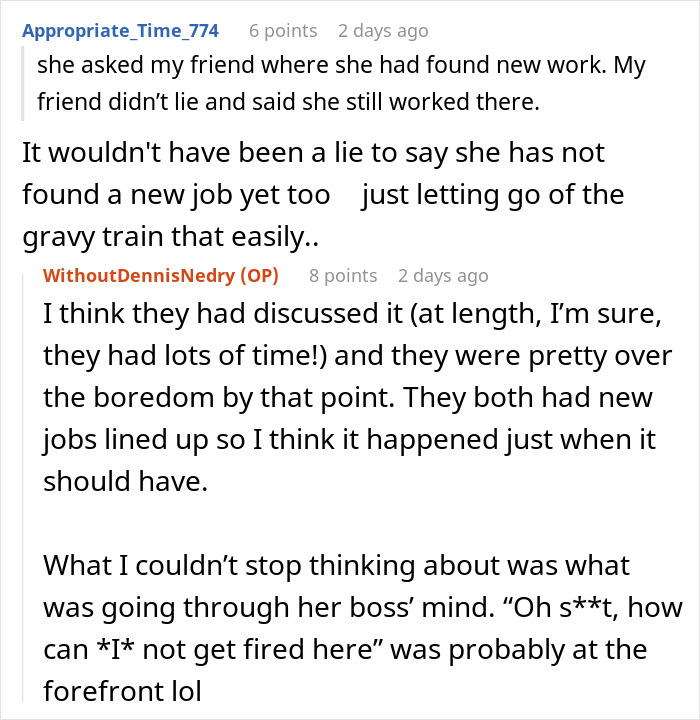

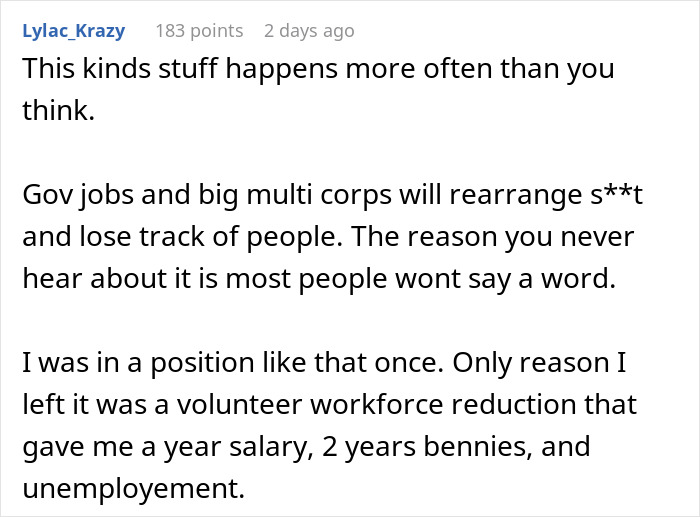

Quite a few folks opened up about some similar experiences of their own

